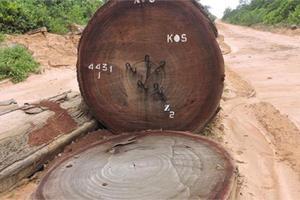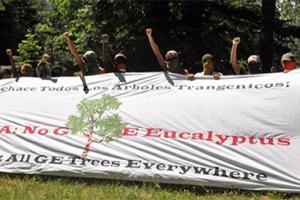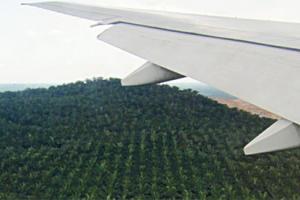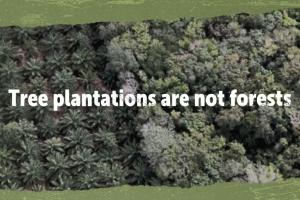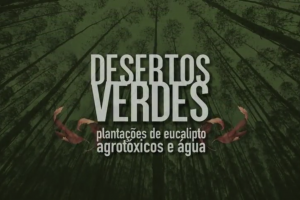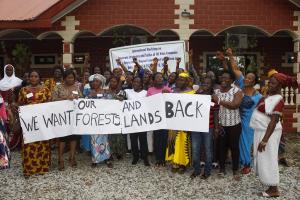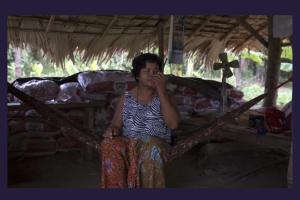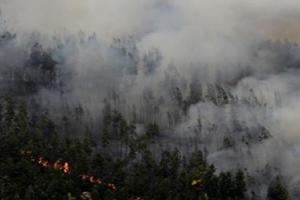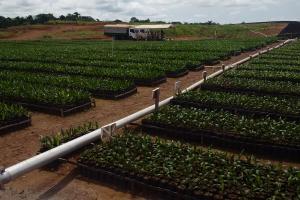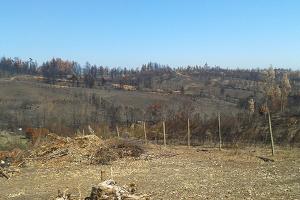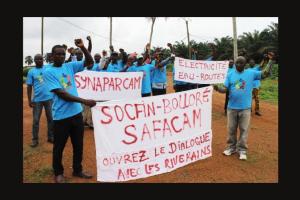Large-Scale Tree Plantations
Industrial tree plantations are large-scale, intensively managed, even-aged monocultures, involving vast areas of fertile land under the control of plantation companies. Management of plantations involves the use of huge amounts of water as well as agrochemicals—which harm humans, and plants and animals in the plantations and surrounding areas.
Bulletin articles
21 September 2017
Bulletin articles
21 September 2017
Photo: STOP GE Trees Campaign
Bulletin articles
21 September 2017
From 11th to 13th October, Mexico City will be hosting a High-Level “Conference on Aviation and Alternative Fuels” convened by the International Civil Aviation Organisation (ICAO). ICAO is a specialised UN organisation with a long record of representing the interests of the aviation industry, i.e. airlines and aircraft manufacturers.
Bulletin articles
21 September 2017
Photo: Ecos Córdoba.
Located in the central region of Argentina, Cordoba is one of the five largest provinces in the country. Between 1904 and 2004, it lost 95 percent of its native forest, mainly as a result of the expansion of large-scale agriculture. Its annual deforestation rates are among the highest in the world, bringing serious consequences for the environment, health and food sovereignty of the population, according to researchers at the National University of Cordoba (1).
Multimedia
10 September 2017
WRM releases five short videos which shows why industrial tree plantations are not forests.
The first one is about the impacts of large-scale tree plantations in general. The other remaining four focus on specific topics: oil palm plantations, pulpwood plantations, impacts on water and certifications.
The videos are available in two formats:
- On the WRM YouTube cannel, to share on web sites, social networks, via e-mail, etc.
- Versions in low resolution to download and share via WhatsApp and Telegram and for use in locations with slow Internet connection.
Multimedia
7 September 2017
Documentary by Centro de Estudos e Pesquisas para o Desenvolvimento do Extremo Sul da Bahia - CEPEDES, Brazil.
Action alerts
28 August 2017
Click here to download this declaration in English
Women and the expansion of industrial oil palm plantations
Other information
23 August 2017
In November 2012, two women were found dead at the edge of a palm oil plantation. The death were understood as a clear warning to the Klong Sai Pattana village in Surat Thani, southern Thailand. The victims had spent the last four years fighting the Jiew Kang Jue Pattana Co. Ltd palm oil company in a land dispute that has engulfed this small community of around 70 families. For decades, Jiew Kang Jue Pattana Co. Ltd has illegally occupied and harvested palm oil trees on 168 hectares of land.
Bulletin articles
11 July 2017
The January 2017 bulletin focused on the numerous initiatives being announced worldwide that promote the expansion of millions of hectares of tree plantations (Bulletin 228, January 2017). At the same time, the plantations and pulp and paper industries, among others, are strongly pushing for Genetically Engineered (GE) trees – eucalyptus and poplar in particular – to be licensed for commercial use. Consequently, this time, the editorial of the WRM Bulletin warns about the promotion of GE trees.
Bulletin articles
10 July 2017
"In these supposedly win-win contracts, I would like to know what our communities are gaining. On the contrary, we are losing and even dying a slow death." With this cry of despair, Célestine Ndong (1) describes the bitter situation in Mouilla, Gabon, where the GRAINE ["seed" in French] program has been underway for several years.
Bulletin articles
7 July 2017
At the beginning of 2017, the south central region of Chile suffered a wave of fires that lasted for several weeks and affected around 500,000 hectares—including forests, monoculture tree plantations and small family farms.
Bulletin articles
7 July 2017
Hundreds of people who live in the vicinity of SOCAPALM and SAFACAM plantations went to SOCAPALM headquarters in Bonanjo, Douala, Cameroon, to request a serious dialogue. Local residents complain that the existing dialogue is very uncertain, and that it lacks a strong framework for effective problem-solving. This is considering the very little progress made in recent years. Local communities, organized through SYNAPARCAM, are requesting to meet with the Director General to establish a solid framework for dialogue.
